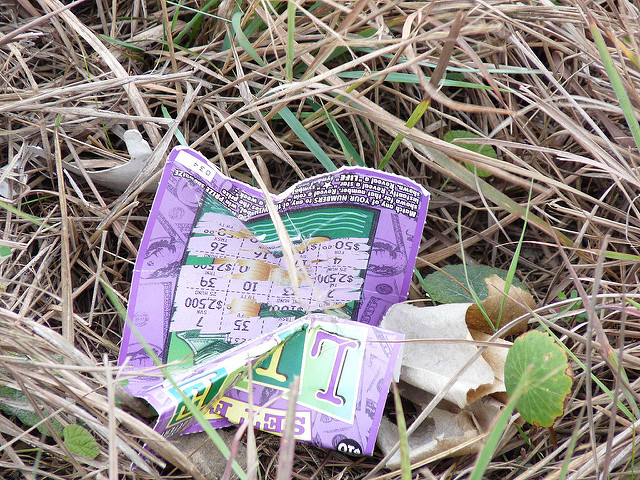Corey Farrenkopf
Every church diocese in the United States has an ordained exorcist on call. Most people don’t know that information, a fact Gretchen relied on. Her Craigslist ad read: Ordained Exorcist Available for Home Consultations, Group Rates May Apply.
* * *
Gretchen was not, in fact, ordained. The Pope never blessed her vials of tap-drawn holy water or laid hands upon her dollar-store Bible. She had no paperwork accrediting claims of monastic training, her tutelage under Cardinal Dimitrov, or the supposed family lineage of Exorcists-to-the-Throne-of-Russia.
Gretchen did have seventy thousand dollars in college loans after a four-year theater program and a form-fitting robe from King Lear junior year. Her affected Romanian accent was passable, if not a little thick.
* * *
In the morning, Gretchen worked as a docent for an art museum. No one recognized the artists’ names she lectured about, moving between still lifes of inarticulate grapes and foggy landscapes. Her pay stub read seventeen dollars an hour. Her one bedroom apartment, with its leaky roof and wayward heaters, cost two grand a month. Exorcisms floated the remaining bills.
* * *
She watched horror movies as how-to videos: The Exorcist, Rosemary’s Baby, The Rite. Gretchen borrowed every title with the word exorcistin it from her local library, growing well-versed in the rhetoric of priestly actors.
Gretchen was glad no one spoke Latin anymore.
* * *
The first email came from a mother whose six-year-old babbled in tongues, refusing sleep, biting those who stepped near. When Gretchen entered the child’s room, she found him huddled in a nest of blankets, the scent of urine thick in the air. Curtains were drawn. The last hint of sunset pressed through the thin fabric, giving the room an amber glow.
“He bites,” the father warned.
And the kid did. The teeth-shaped bruises were hard to explain to her Tinder date the next night. Aggressive hamster, she lied.
With a quart of canola oil, a satchel of dried oregano, and some improv Latin, Gretchen cast out the spirit, a slick yellowing cross painted across the boy’s forehead. On her way out, she pulled the mother aside, whispering in thick Romanian to test for lead paint.
* * *
Most exorcisms shared similar characteristics. Concerned parents calling for children between the ages of five and ten, hyperactive, speaking in tongues. Gretchen had her theories: rampant sugar consumption, gobbledigook children’s programing, bad parenting. She pocketed the wages and left the parents to clean up the mess they let their lives become. With the demon gone, there were few other places for them to place the blame.
* * *
It was her forty-second exorcism that skewed her findings. The woman who contacted Gretchen was vague, but her brownstone was only a few blocks away.
Most of the lights within were mute. The paint peeled, the handrail guiding her up the front steps had rusted through. An elderly woman met Gretchen at the door, the odor of ten thousand garlic cloves lingering behind her. The woman introduced herself as Sarah.
“He’s this way,” Sarah said, gesturing into the house.
“What ails him?” Gretchen asked, stepping inside. A wall of yellowing family photos lined the hall, the garlic reek swelling with each step.
“He’s a different man. He’s usually mean, swears all day. Now he’s docile. Kind. The demon’s plotting something.”
“Have you taken him to the doctor?”
“Yes, but they know nothing. Dementia is a myth. Just another reason to pay for pills.”
Gretchen froze. Her grandfather died from Alzheimer’s-related complications. She held her tongue, knowing the anecdote and scientific explanations didn’t fit her supposed position. Grandfather Visiliovich was supposed to have perished battling a horde of demons trapped in a young girl, not hospital bound in a geriatric ward.
Inside the living room, reclined on a threadbare sofa, Gretchen found William, the man in question, a pale blue suit covering his shrunken shoulders.
“Who’s this young woman?” William asked. “Beth’s daughter?”
“Who’s Beth?” Gretchen asked.
“Our daughter. Only a demon would be mistaken,” Sarah replied.
“Why the demon talk again, Sar? You know it’s me. It’s always just me,” he said.
“Can you begin?” Sarah asked, face blanched white.
“Sure,” Gretchen replied, opening her satchel, unearthing oil and herbs, the silver crucifix purchased at the corner thrift.
“Are you here to make dinner?” William asked, observing the canola oil.
“Not quite,” Gretchen replied, flipping through her Bible.
“You’re going to read? I love a good story,” William said.
“Cast it out. This isn’t him,” Sarah said.
Gretchen couldn’t bring herself to mutter the faked prayers. The old man resembled her grandfather, all broad-toothed smiles and offers of cinnamon chews. She’d always guilted herself for not being there in the end, but there was school, the fear of failed classes extending her debt. Another semester meant ten more years of payment.
Gretchen’s anxiety flared. The room, filled with family portraits, seemed to be closing in.
“Can we get you something?” William asked, reaching out a hand, grazing the back of Gretchen’s.
“No, nothing,” Gretchen said, packing her possessions. “I have to go.”
Her Romanian accent faltered, reverting to an East Coast lilt.
“What, no,” Sarah said, “You must…”
“I don’t have to do anything,” Gretchen replied. “Listen to the doctors. Nothing I can do will make this better.”
Then she was running down the hall, robe swishing behind, family portraits rocking on their nails. Sarah followed, pleading. There was nothing Gretchen could do to reverse the man’s illness. She couldn’t profit off the woman’s ignorance, having seen the same reaction in her grandmother just before her grandfather’s decline. With the children, Gretchen blamed poor parenting, but with the older man, the guilt nestled closer to her chest.
I don’t need the money that bad, Gretchen thought, emerging from the garlic-drenched hall.
Turning back, Gretchen found Sarah leaning against the front baluster, face in hands, William over her shoulder, waving goodbye.
Corey Farrenkopf lives on Cape Cod with his wife, Gabrielle, and works as a librarian. His fiction has been published in Catapult, Redivider, Hobart, JMWW, Slushpile Magazine, Third Point Press, Blue Earth Review,and elsewhere. To learn more, follow him on twitter at @CoreyFarrenkopf or on the web at CoreyFarrenkopf.com.



